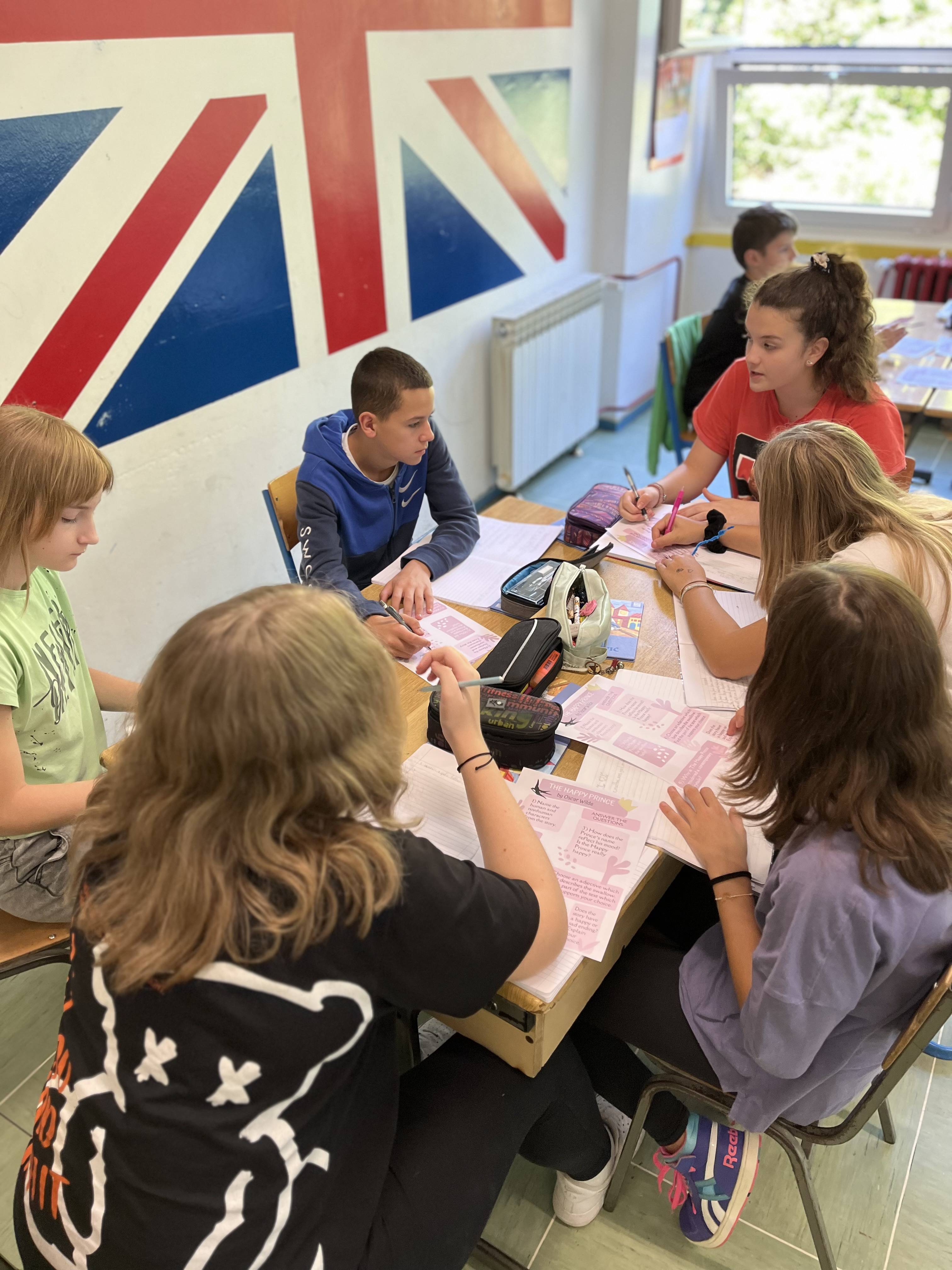Osnovna škola Ivana Zajca Rijeka


| « Prosinac 2024 » | ||||||
| Po | Ut | Sr | Če | Pe | Su | Ne |
| 25 | 26 | 27 | 28 | 29 | 30 | 1 |
| 2 | 3 | 4 | 5 | 6 | 7 | 8 |
| 9 | 10 | 11 | 12 | 13 | 14 | 15 |
| 16 | 17 | 18 | 19 | 20 | 21 | 22 |
| 23 | 24 | 25 | 26 | 27 | 28 | 29 |
| 30 | 31 | 1 | 2 | 3 | 4 | 5 |
European Day of Languages is celebrated every year on 26 September. The aim of it is to raise awareness of the wide variety of languages in Europe. This school year we decided to celebrate it by promoting a healthy reading culture and motivating our students' reading habits.
Teachers Anita Šehić and Bojana Palijan worked together to develop a project that was conducted with Year 6 students and which included collaboration between the following school subjects: Croatian, English, Italian, R.E. and Form class. The project revolved around reading and discussing The Happy Prince, a short story written by Oscar Wilde, an Irish poet and playwright, and a lot of follow-up activities. Students started by reading the story in both languages, paragraph after paragraph, changing the language from Croatian to English and vice versa. By doing that, they noticed that literal word-by-word translation would render an unintelligible interpretation and that languages often differ in word order. Also, single words do not always have an exact translation equivalent, which brought students to conclude that we cannon translate each word separately. After reading the story, students were divided into two groups in which they discussed the plot, the symbols and the moral of the story. One group had the reading comprehension questions in their native language, the other one in English. Thus, learners who are usually reluctant to speak English were allowed to equally participate in the classroom discussion by using their mother tongue. The lesson was interactive and engaging, and both the teachers and the students loved the format of the co-taught lesson. It was a great opportunity to engage in a different type of teaching and learning.
Other follow-up activities included writing a letter of appreciation to someone who makes you happy, writing an acrostic poem using the 'theme words' from the story, such as kindness, generosity and compassion, and creating classroom posters with random acts of kindness in all the languages our students speak. Teachers Dinka Bajčić Pavletić (Religious Education) and Danijela Tatalović (Italian language) cooperated on the project as well. In their Religious Education class, students talked about charity work and ways of helping people in need, which is a recurring theme in the Oscar Wilde's story. In their Italian class, they translated the random acts of kindness they came up with into Italian.
The project aimed at developing not only students' reading comprehension skills, but also their critical and creative thinking skills, with a strong emphasis on cooperation, solidarity and inclusion.
You can find the materials we used below, along with the classroom posters and some of the students' writings in English.

 6.b
6.b
 6.b
6.b
 Lesson_plan_TheHappyPrince_rujan2023.docx
(16.40 KB)
Lesson_plan_TheHappyPrince_rujan2023.docx
(16.40 KB)  Sretni_kraljevic_Oscar_Wilde.pdf
(53.95 KB)
Sretni_kraljevic_Oscar_Wilde.pdf
(53.95 KB)  The_Happy_Prince_handout.pdf
(414.79 KB)
The_Happy_Prince_handout.pdf
(414.79 KB)  IMG_4822.jpeg
(415.17 KB)
IMG_4822.jpeg
(415.17 KB)  IMG_4820.jpeg
(561.61 KB)
IMG_4820.jpeg
(561.61 KB)